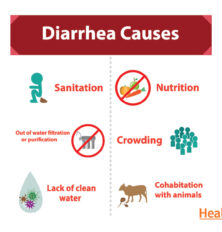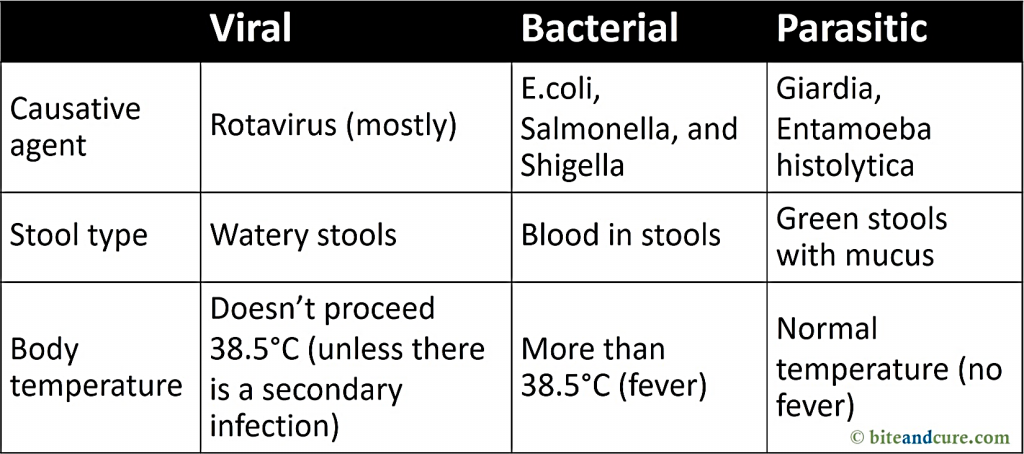What Causes Viral Diarrhea
Diarrhea - a condition that no one wants to talk about, but we all have experienced it at some point. From missing an important meeting to cancelling an entire trip, diarrhea can ruin everything in just a few moments. But what causes diarrhea? Well, there can be many different reasons behind it. Some might think it's just a matter of bad food, but there are some other causes as well. In this article, we will dive deep into the causes, prevention, and treatment of infectious diarrhea.
Infectious Diarrhea - What is it?

Before we start discussing the specific causes of infectious diarrhea, let's first understand what it means. Infectious diarrhea is a type of diarrhea that is caused by microorganisms such as bacteria, virus, or parasites. In most cases, it is spread through contaminated food and water. The symptoms might vary from mild to severe, depending on the type of infection.
Types of Infectious Diarrhea

There are different types of infectious diarrhea, depending on the microorganisms that cause them. Let's discuss them one by one.
Bacterial Diarrhea
Bacterial diarrhea is caused by the bacteria that infect the digestive system. The most common types of bacteria that cause diarrhea include salmonella, E.coli, and shigella. The symptoms might range from a mild stomach ache to severe abdominal pain, vomiting, and bloody diarrhea. It can last anywhere from a few days to a week, depending on the severity of the infection. The preferred treatment for bacterial diarrhea is antibiotics that target the specific bacteria responsible for the infection.
Viral Diarrhea
Just like bacterial diarrhea, viral diarrhea is also highly contagious and can spread through contaminated food and water. The most common types of viruses that cause diarrhea are norovirus and rotavirus. The symptoms might be mild, such as a stomach ache and watery diarrhea, or severe, with vomiting and high fever. There is no specific treatment for viral diarrhea, and it usually goes away on its own within a few days. However, the patient needs to keep hydrated to prevent dehydration.
Parasitic Diarrhea
Parasitic diarrhea is caused by parasitic microorganisms that infect the digestive tract. The most common type of parasite that causes diarrhea is Giardia. The symptoms might range from mild to severe, including vomiting, watery diarrhea, and weight loss. The treatment for parasitic diarrhea includes specific medicine that targets the parasite.
Prevention of Infectious Diarrhea
Now that you know the causes of infectious diarrhea let's move on to the prevention. Prevention is better than cure, and there are some simple steps that you can take to prevent infectious diarrhea.
Wash Your Hands
Washing your hands frequently is one of the easiest ways to prevent infectious diarrhea. Use warm water and soap to wash your hands, especially after using the washroom, before eating, and after handling any uncooked food.
Cook Your Food Properly
Cook your food thoroughly, especially meat and poultry. Use a food thermometer to make sure that the internal temperature of the food is safe to eat.
Avoid Street Food
If you're traveling to a foreign land, try to avoid eating street food as much as possible. It might be tempting, but it could put you at risk of infectious diarrhea.
Drink Clean Water
Drink bottled water or boiled water to reduce the risk of contamination. Avoid tap water, ice, and beverages made with tap water.
Treatment of Infectious Diarrhea
Now, let's move on to the treatment of infectious diarrhea. The treatment might vary depending on the type of infection and its severity.
Rehydration
The most common complication of infectious diarrhea is dehydration. It's essential to keep your body hydrated by drinking enough fluids such as water, coconut water, or clear broths. Avoid caffeine, alcohol, and sugary drinks.
Medications
If the infection is caused by bacteria, your doctor might prescribe antibiotics that target the specific bacteria. However, antibiotics are not effective against viral or parasitic infections.
Rest
Allow your body to rest and recuperate. Don't force yourself to work or undertake physical activities as it could worsen the symptoms.
Conclusion
Diarrhea can be challenging, but it's essential to know the causes and prevention methods to avoid it in the first place. Washing your hands, cooking food properly, avoiding street food, and drinking clean water can significantly reduce the risk of infectious diarrhea. If you're suffering from diarrhea, make sure to stay hydrated and take rest. If the symptoms persist, visit your doctor to get an accurate diagnosis and treatment plan.